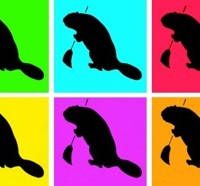“Carmen.” Stromae has a music video that’s relevant to our recent conversation about localist social media. Here’s what I want to know: What might happen if the Big Blue Bird swallowed Charlie Chaplin? What sort of indigestion might a swallowed Chaplin provoke?
“Teens, Social Media & Technology 2018.” The news isn’t exactly encouraging: “95% of teens have access to a smartphone, and 45% say they are online ‘almost constantly.’”
“How Scientists in Kansas and Missouri Are Exploring a New Frontier in Agriculture.” Liz Miller writes about Kernza and the growing research into perennial polycultures.
“10 Numbers That Show How Much Farmland We’re Losing to Development.” Dan Nosowitz reports on the dramatic loss of America’s farmland.
“The Urban-Rural Divide More Pronounced Than Ever.” Gracy Olmstead writes about America’s increasing cultural, partisan, and geographic polarization. But she also finds grounds for hope:
This newest Pew poll suggests that the more deeply we know each other—and the more time we spend together—the less lonely and restless we will feel. That isn’t a shocking revelation, but it’s an important one nonetheless. Those who feel nourished and cared for by their communities will feel less cheated by the state and more empowered to confront the changes and dilemmas in their neighborhoods.
“Jürgen Habermas: ‘For God’s Sake, Spare Us Governing Philosophers!’” Borja Hermoso interviews Jürgen Habermas, who mourns the loss of readers and the concomitant erosion of the public sphere. On his account, social media have played a big role in this loss.
“Exclusive: Ronald Reagan’s 1980 Election Eve Speech Draft Was Lost to History. Until Now.” John McClaughry, a speechwriter for Reagan, tells the story of a speech that would have at least promised a more decentralized, human scale government:
Then came the one original idea, which I have always referred to as Tribune of the People. The speech promised a White House office that would “identify the laws and activities of the federal government which have the effect of stripping power away from the people of this country, or stifling independent initiative, or defeating self-help and enterprise at the local level, and of undermining the human scale institutions of our society.” The speech pledged that as president he would give his personal attention to act on the recommendations from this office to roll back too much government.
(Thanks to Bill Kauffman for the recommendation.)
“The Man Who Discovered ‘Culture Wars.’” Jason Willick talks to James Davison Hunter about America’s ongoing culture wars. Hunter notes that since his 1991 book, the cultural battle lines have increasingly aligned with class lines. And the conflict hasn’t lessened because we continue to rely on politics to solve these deep-seated cultural disagreements:
“The state is the institution that holds the reins of legitimate violence,” Mr. Hunter says, “and this is one of the reasons why our disputes tend to be litigated more than they are actually debated.” When your cultural adversaries are in power, it can feel as if you are under hostile occupation. “The state becomes the patron of a certain vision of the world,” he adds.






